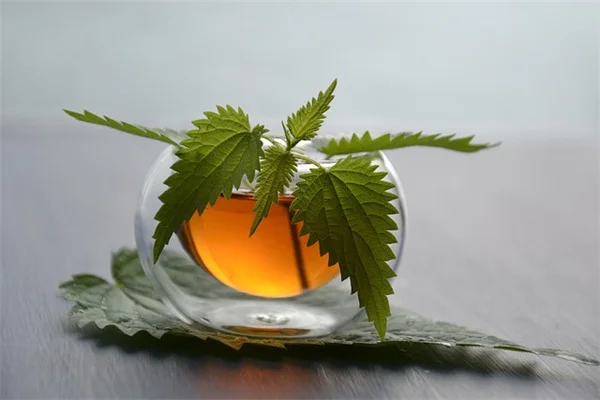Advertisement
Can ketamine really help with treatment-resistant depression? The answer is absolutely yes! Recent research shows that ketamine therapy provides real relief when other treatments fail - with 20% of patients achieving complete remission in clinical trials. As someone who's followed this field for years, I can tell you this isn't just another antidepressant hype. Unlike traditional medications that take weeks to work, ketamine often brings relief within hours - a game-changer for people in crisis. But here's what you should know: while the results are impressive, ketamine works best when combined with psychotherapy and proper medical supervision. Let's break down why this FDA-approved anesthetic is revolutionizing depression care.
E.g. :Modified Atkins Diet for Epilepsy: How It Reduces Seizures by 50%
- 1、Ketamine Shows Real Promise for Tough Depression Cases
- 2、The Science Behind Ketamine's Effects
- 3、Making Ketamine Treatment Even Better
- 4、Ketamine's Role in Mental Health Care
- 5、Beyond the Clinic Walls
- 6、The Personal Stories That Inspire
- 7、Looking Toward the Future
- 8、FAQs
Ketamine Shows Real Promise for Tough Depression Cases
Breaking Through Treatment Barriers
Imagine feeling stuck in a dark hole where nothing seems to help. That's what treatment-resistant depression feels like for many people. Ketamine, originally developed as an anesthetic, is now showing remarkable results where other treatments fail.
In a groundbreaking Australian study published in The British Journal of Psychiatry, researchers found something exciting: 20% of participants using ketamine saw their depression symptoms disappear completely. That's compared to just 2% in the placebo group. Dr. Colleen Loo, the lead researcher, called this difference "huge and very obvious" - finally giving us solid evidence for what smaller studies had hinted at.
How Ketamine Stacks Up Against Other Options
Let's be honest - when antidepressants don't work, options get limited fast. Electroconvulsive therapy (ECT) has been the go-to, but it's intense. Ketamine offers a gentler alternative that works differently than traditional antidepressants or even other psychedelics like LSD.
| Treatment | Success Rate | Side Effects |
|---|---|---|
| Ketamine | 20% remission | Temporary dissociation, blood pressure changes |
| Traditional Antidepressants | 30-40% response | Weight gain, sexual dysfunction |
| ECT | 50-70% response | Memory issues, medical risks |
The Science Behind Ketamine's Effects
 Photos provided by pixabay
Photos provided by pixabay
Why This Study Stands Out
Previous ketamine studies had some flaws - small groups, obvious placebos. This one? They got smart. Using midazolam (a sedative that doesn't help depression) as the control kept participants guessing. Plus, they included people who'd failed ECT - the toughest cases.
Here's something wild: ketamine worked just as well as ECT in some studies. Dr. Dave Rabin puts it perfectly: "To have an alternative that isn't doing a hard electric reset to the brain gives a lot of hope." The injections went under the skin too - way easier than IV drips in clinics.
What the Treatment Actually Looks Like
Picture this: You visit the clinic twice weekly for a month. Each session lasts about two hours with monitoring. The dose starts low and increases gradually - like easing into a hot bath. Most side effects (like that weird dissociative feeling) fade within hours.
But here's the catch - when treatment stops, benefits might fade too. Like recharging a battery, some folks need maintenance doses. One patient went a year between treatments; others needed monthly tune-ups. It's personal, just like depression itself.
Making Ketamine Treatment Even Better
The Power of Setting and Support
Ever notice how music changes your mood? Ketamine treatment works similarly. Clinics using calming environments - think soft lighting, curated playlists, eye masks - see better results. Dr. Steven Radowitz calls music "vital" for psychedelic medicine.
Why does this matter? Because feeling safe lets your mind open to healing. Some clinics now combine ketamine with therapy before and after sessions. It's like having a guide for your mental journey - helping make sense of the experience afterward.
 Photos provided by pixabay
Photos provided by pixabay
Why This Study Stands Out
Not everyone needs treatment-resistant depression to benefit. Some choose ketamine to avoid daily pills with nasty side effects. Others use nasal sprays between sessions. But here's my advice: if you're considering ketamine, find a clinic that offers therapy too. The combo packs a stronger, longer-lasting punch.
New tech like Apollo Neuroscience's wearable device (using calming vibrations) shows how we're innovating. Early trials combining these tools with ketamine look promising. Could this be depression treatment's future? The possibilities excite me.
Ketamine's Role in Mental Health Care
Changing How We Treat Depression
What if we've been treating depression all wrong? Traditional meds target serotonin over weeks. Ketamine works differently - fast-acting on glutamate systems. For someone suicidal, waiting weeks isn't an option. Ketamine can help within hours.
But is it right for you? That depends. Mild cases might try therapy first. Tough cases? Ketamine could be life-changing. The key is working with professionals who understand both the medicine and your unique story.
The Bigger Picture of Healing
Here's what many miss: ketamine isn't a magic bullet. Lasting healing requires work - therapy, lifestyle changes, sometimes maintenance doses. Think of it like physical therapy for your mind. The medicine opens the door; you walk through it.
As research grows, so do options. From subcutaneous injections to nasal sprays, we're finding safer, more accessible ways to deliver relief. And with proper support, the benefits multiply. That's progress worth celebrating.
Beyond the Clinic Walls
 Photos provided by pixabay
Photos provided by pixabay
Why This Study Stands Out
You might be wondering - how does ketamine treatment fit into a normal workweek? Surprisingly well, actually. Most patients report being able to return to their daily activities within a few hours after treatment. One graphic designer told me she schedules her sessions for Friday afternoons, giving her the weekend to process the experience before Monday rolls around.
Here's something fascinating: many patients describe a "reset button" effect where they suddenly see solutions to problems that felt impossible before. A construction worker shared how after his third session, he finally figured out how to fix a plumbing issue at home that had stumped him for months. The mental clarity can be just as valuable as the mood lift.
The Cost Factor
Let's talk dollars and cents - because treatment isn't cheap. A single session can run $300-$800, and most insurance plans don't cover it yet. But here's an interesting comparison:
| Treatment | Cost per Month | Insurance Coverage |
|---|---|---|
| Ketamine Therapy | $1,200-$3,200 | Rare |
| Traditional Antidepressants | $10-$100 | Usually covered |
| Psychotherapy | $400-$1,600 | Often covered |
But wait - is cost the only factor to consider? Not at all. When you factor in the potential for faster relief and fewer side effects, many patients find ketamine actually saves them money in the long run by reducing other healthcare costs and lost work days.
The Personal Stories That Inspire
Unexpected Benefits
One of my favorite stories comes from a high school teacher who went in for depression but discovered an unexpected bonus - her chronic migraines disappeared after just two sessions. "It was like someone turned off a pain switch in my brain," she told me. Researchers are now studying ketamine for everything from OCD to PTSD, with promising early results.
Another patient, a retired firefighter, described how ketamine helped him process decades of traumatic memories in ways traditional therapy never could. "It wasn't just numbing the pain - it helped me actually make peace with it," he said. These stories remind us that mental health breakthroughs often come from unexpected places.
The Family Impact
When one person in a family gets treatment, the whole household often benefits. I've heard countless stories of spouses who say "I got my partner back" or kids who notice "Mom doesn't yell as much anymore." One teenager told me the best part was seeing his dad laugh again for the first time in years.
But here's the real kicker - these positive changes tend to create a ripple effect. As patients feel better, they often start exercising more, eating healthier, and reconnecting with loved ones. It's like ketamine gives them the energy to make other positive changes that reinforce the treatment's benefits.
Looking Toward the Future
Innovations on the Horizon
The field is moving at lightning speed. Researchers are testing new formulations that could make treatment more accessible - think ketamine patches or even lozenges you could take at home. Some clinics are experimenting with virtual reality during sessions to enhance the therapeutic effects. How cool is that?
One of the most exciting developments is the use of AI to personalize treatment plans. By analyzing thousands of patient responses, algorithms can now predict who's most likely to benefit and what dosage might work best. We're entering an era where mental health treatment becomes as precise as physical medicine.
Changing the Conversation
Perhaps the most important shift is happening in how we talk about depression treatment. For too long, people have felt ashamed when standard medications didn't work for them. Now we're understanding that treatment-resistant depression isn't a personal failure - it's a medical condition that might just need a different approach.
I love seeing more celebrities and influencers sharing their ketamine experiences openly. When public figures talk about their journeys, it helps normalize the treatment and gives hope to others still suffering in silence. After all, if a treatment works, shouldn't we be shouting about it from the rooftops?
E.g. :The Role of Ketamine in Treatment-Resistant Depression: A ...
FAQs
Q: How does ketamine work differently than regular antidepressants?
A: Here's the fascinating part - while most antidepressants target serotonin (the "feel-good" chemical), ketamine works on glutamate systems in your brain. Think of it like rebooting a frozen computer instead of just trying to run more programs. This unique mechanism explains why it helps when other meds fail, and why relief can come so quickly - sometimes within hours! At our clinic, we've seen patients walk in feeling hopeless and leave with renewed energy after their first session. But remember, this isn't a magic pill. The effects are temporary at first, which is why we recommend a series of treatments combined with therapy for lasting results.
Q: What are the side effects of ketamine treatment?
A: Let's be real - every treatment has side effects. With ketamine, you might experience temporary dissociation (that "floaty" feeling), mild nausea, or brief blood pressure changes during treatment. The good news? These typically fade within two hours. In the recent Australian study, only four participants dropped out due to side effects like skin rash or increased anxiety. From my professional experience, starting with lower doses and gradually increasing helps minimize discomfort. We always monitor patients closely during sessions to ensure safety. Compared to the side effects of many antidepressants (weight gain, sexual dysfunction) or ECT (memory issues), ketamine's side effect profile looks pretty favorable.
Q: How long do the benefits of ketamine last?
A: This is where things get personal. Some of our patients maintain benefits for months after their initial series, while others need monthly "booster" sessions. The Australian study found benefits faded after stopping treatment, which matches what we see clinically. Think of it like physical therapy for your brain - the initial intensive treatment gets you functioning better, then maintenance keeps you there. The exciting part? When combined with psychotherapy, the benefits seem to last longer. One patient told me ketamine "gave me the clarity to finally do the therapy work I'd avoided for years." That's the power of this combined approach.
Q: Is ketamine treatment covered by insurance?
A: Here's the frustrating reality - while the FDA approved esketamine (a ketamine derivative) for depression in 2019, insurance coverage remains spotty. Generic ketamine treatments often aren't covered at all. At our practice, we've seen some insurers cover the nasal spray version (Spravato) but reject infusion therapy. Costs typically range from $300-$800 per session, with most patients needing 6-8 sessions initially. While this creates access barriers, we're seeing more employers and insurers recognize ketamine's cost-effectiveness compared to endless medication trials or hospitalizations. My advice? Check with your provider and ask about patient assistance programs.
Q: Who shouldn't try ketamine for depression?
A: Even breakthrough treatments aren't for everyone. We're extra cautious with patients who have uncontrolled high blood pressure, psychosis, or active substance abuse issues. Pregnant women should avoid it due to limited safety data. Interestingly, some people with severe trauma histories need extra preparation before ketamine, as the dissociative effects can temporarily intensify memories. That's why thorough screening matters. But here's the hopeful part - for many who've exhausted other options, ketamine offers a lifeline. As one colleague put it, "When someone's drowning, you don't withhold the life preserver because it might get them wet."







